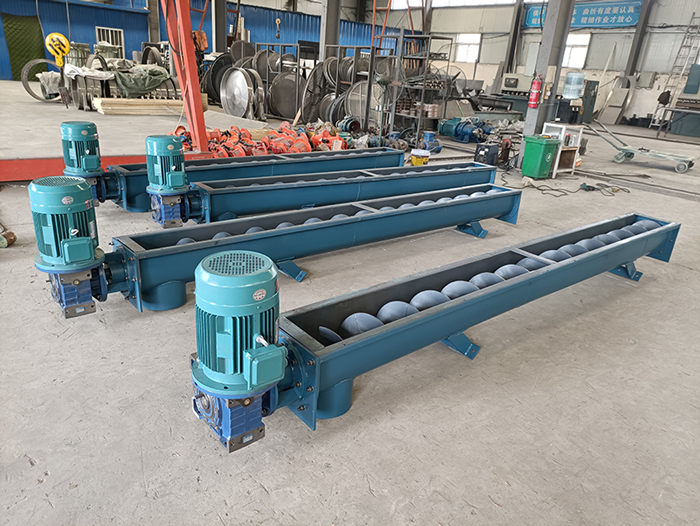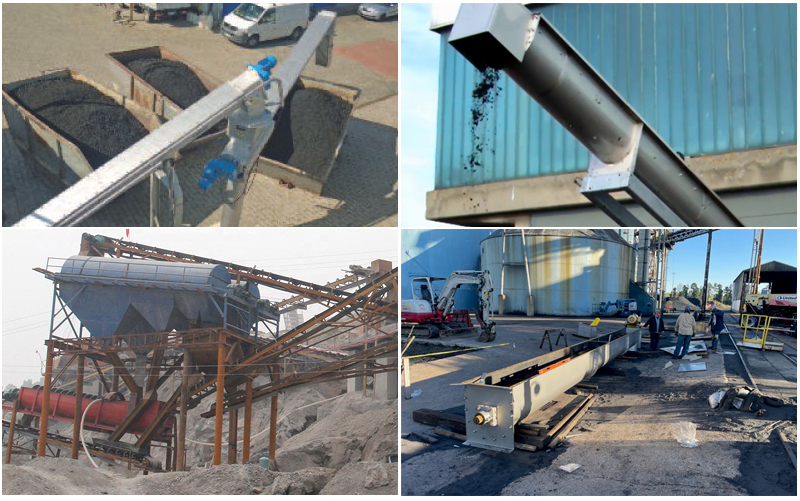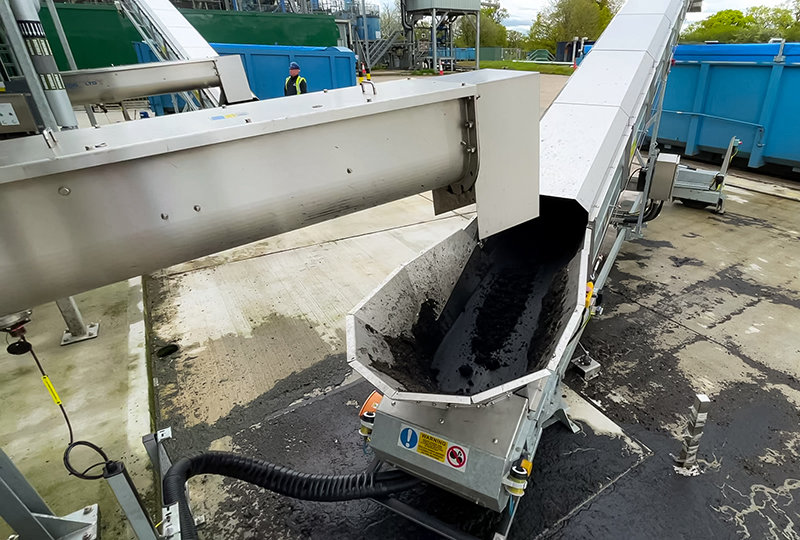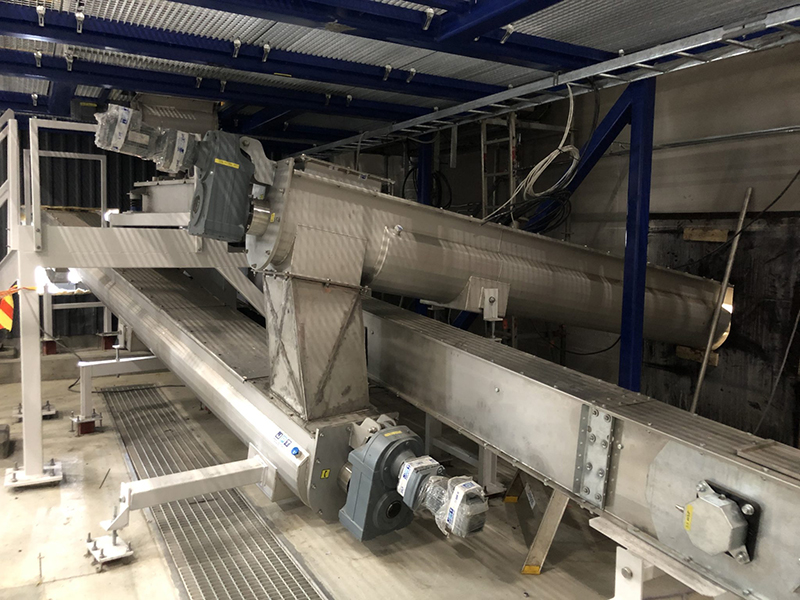Screw conveyors are commonly used in the petroleum industry to handle and transport petroleum coke (a by-product of the refining process). This article will introduce the application of screw conveyor in conveying petroleum coke.

Petroleum Coke Transportation: Screw conveyors can be used to transport petroleum coke from one location to another within a refinery or manufacturing facility. For example, a conveyor can move coke from a storage area to a processing area.
Petroleum coke blending: It can be used to blend different types of petroleum coke. Conveyors move the coke into the mixing process, ensuring it is thoroughly mixed.
Petroleum Coke Waste Removal: Screw conveyors can be used to remove waste from the coke, ensuring a high quality end product.
Petroleum coke feeding: It can be used to feed petroleum coke to various types of equipment, such as boilers, kilns, reactors, etc. Conveyors move the coke into the plant where it is heated and processed.


While screw conveyors are a popular choice for handling petroleum coke, there are some limitations and drawbacks to consider:
Abrasive materials: Petroleum coke is a highly abrasive material that can cause wear and tear on the conveyor components. Over time, this can lead to increased maintenance and repair costs.
Corrosive materials: Petroleum coke can also be corrosive, which can cause damage to the conveyor components. Special materials may be required to protect the conveyor from corrosion.
High temperatures: Petroleum coke can be processed at high temperatures, which can pose a challenge for screw conveyors. The conveyor must be designed to withstand these temperatures and to prevent any damage to the components.
Moisture content: The moisture content of petroleum coke can vary, and wet coke can cause blockages and other problems in screw conveyors. The conveyor must be designed to handle wet coke, or a separate drying process may be required.
Space limitations: Screw conveyors require a certain amount of space to operate effectively. In some cases, there may not be enough space to install a screw conveyor, or the conveyor may need to be designed to fit into a compact space.
Noise: Screw conveyors can generate noise during operation, which can be a concern in some environments. Noise reduction measures may be needed to minimize the impact on workers and nearby residents.

A petrochemical company in the United States used a screw conveyor to transport petroleum coke from a storage silo to a processing area. The conveyor was customized to handle the abrasive and corrosive nature of the coke, and it was designed to fit into a compact space.
A refinery in Europe used a screw conveyor to transport petroleum coke to a waste disposal area. The conveyor was designed to handle wet coke and to prevent blockages, and it was equipped with safety features to protect workers.
A power plant in South America used a screw conveyor to feed petroleum coke into a boiler. The conveyor was designed to withstand high temperatures and to prevent the coke from clumping together. The conveyor was also equipped with a dust collection system to prevent emissions.
A refinery in the Middle East used a screw conveyor to transport petroleum coke from a storage area to a blending area. The conveyor was customized to handle the specific properties of the coke, including its moisture content and particle size.
A chemical plant in Asia used a screw conveyor to transport petroleum coke to a reactor for processing. The conveyor was designed to handle the high temperatures and corrosive nature of the coke, and it was equipped with safety features to prevent accidents.
Overall, a screw conveyor is a versatile and efficient tool for handling and transporting petroleum coke in a variety of applications. They are widely used in the petroleum industry for moving, blending, drying, screening and feeding petroleum coke, helping to ensure the high quality of the final product.
Address:China,Yanjin county forest park gate to the west 1000 meters north road.